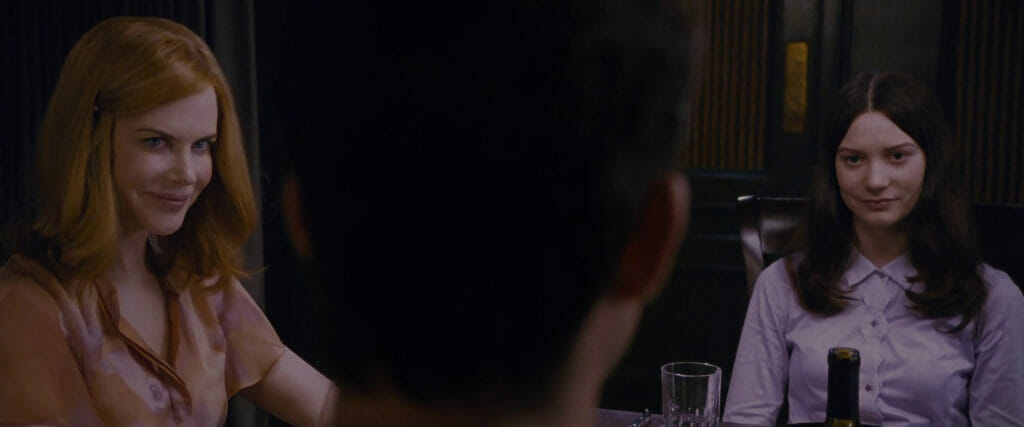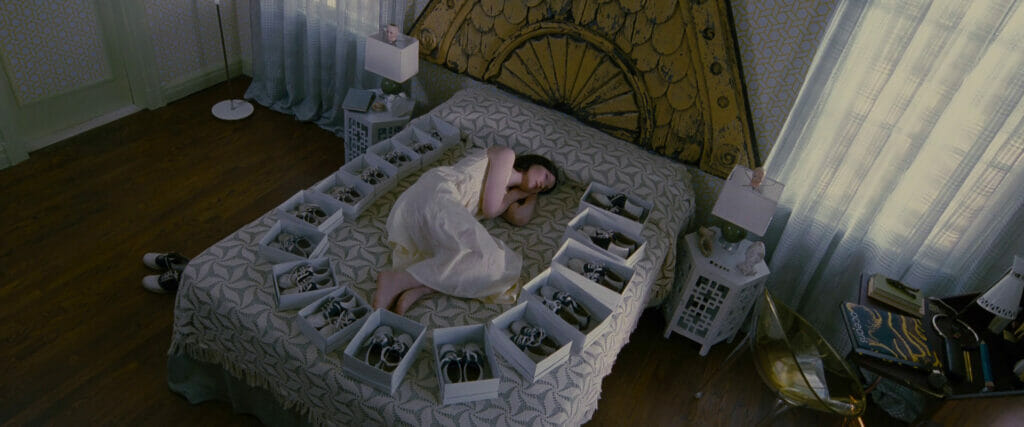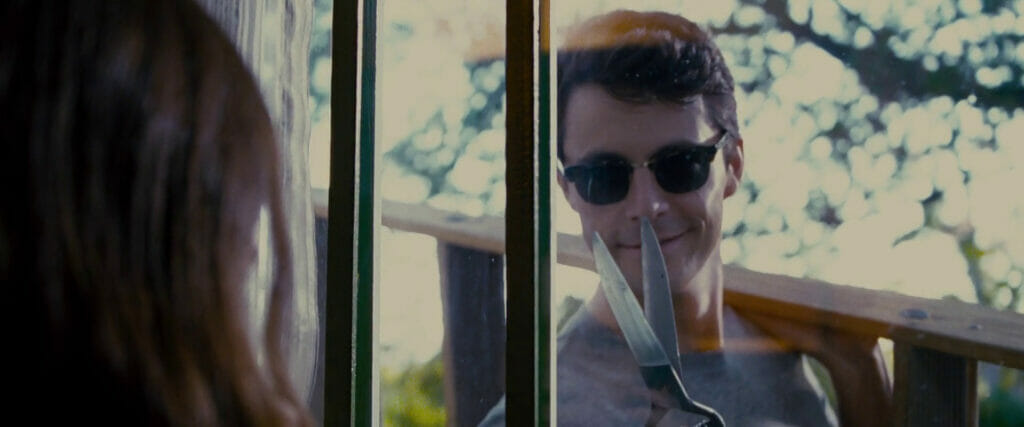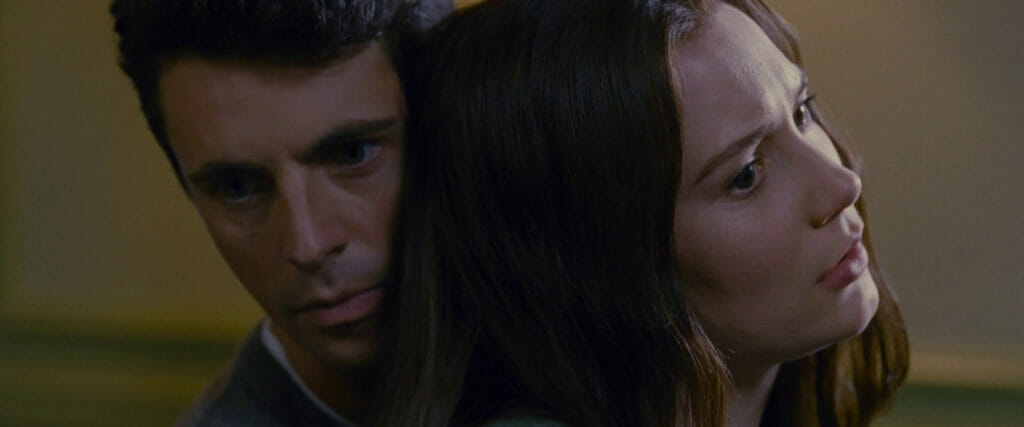The renowned director looks back at his unsettling yet stylish coming-of-age tale 10 years later.
There’s more than one transition going on in Park Chan-wook‘s 2013 thriller Stoker. Yes, the film tells the story of how the seemingly carefree India (Mia Wasikowska) goes from worshipping her father to worshipping her uncle Charlie (Matthew Goode). But the Hitchcockian thriller — and it is one, beyond the shadow of a doubt — was also Director Park’s first English-language title.
“I’ve actually forgotten that it’s been 10 years. I didn’t know that such a long time had passed,” said the director over Zoom as translated by Jiwon Lee. “This year is also Oldboy’s 20th anniversary — how fortuitous!”
The Spool returns to India Stoker’s 18th birthday with Director Park as our guide. Together, we discover his work process in a new culture, lessons learned, and some neat revelations (including a variation of the ending).
The Spool edited this interview for length and clarity.
Stoker satisfies your desire to make a film in a different language, in this case, English. But I’d like to ask: When did this desire first come to you?
At first, it was an unimaginable task. I never even had that question of, “Could I make a movie in English?” So I never saw the possibility, nor did I ever imagine it happening. And not only in English but in any other foreign language, because I’ve never lived abroad. But after Oldboy’s release in Cannes, it changed everything for me.
I had many scripts and projects come my way after Cannes. I also had a contract with my agency, which also led to more projects. That was when it was starting to feel really feasible that something like that could happen.
Right.
But most of these projects were vengeance films or action films, and I wasn’t very interested in them. I had to specifically tell my agent, “The genre I was looking for is closer to psychological thriller.” That was how Stoker came my way. I don’t exactly remember when this happened, but from when I first got the offer to actually sign the contract to direct, I think that process was relatively quick, especially for a Hollywood project.
And since the budget for Stoker wasn’t massive, that may have been a factor as to why it was green-lit so fast?
That was definitely a reason. It also helped that Nicole Kidman quickly signed up to play the role.

Being bilingual and having spent much time in a different culture, I find that my creative process can be driven by the brain more than my heart. For example, I’d have to translate first before I can execute. Was the making of Stoker “more heart” or “more brain” to you?
A difficult question! It’s very hard to differentiate whether or not you’re using your heart or your brain. Regarding what directors and writers do — I also participated in creating the script even though I wasn’t credited — I feel like they’d all use the brain. A lot of calculations are involved, especially regarding my specific style of directing. There’s no difference between working in Korea or in other cultures regarding this.
But making films involves collaborating with a lot of people. In communicating with the cast and the crew, or studio executives, that’s a whole different line of work. A more emotional form of work. Using your terminology, that’s work that involves more use of the heart.
Using your experience as a producer, would you have done anything differently to make Stoker more appealing in the U.S., or Western audiences in general? [Writer’s note: The film was not reported as a box-office success, bringing in $12.1 million on a $12 million budget]
That’s a hard question. I especially feel a lot of attachment for Stoker. Honestly speaking, I think we did a good job. As small as the scale of the movie is, it’s very detailed and eloquently executed. I really hope that it becomes more well-known. I almost wish that this had a 10th-anniversary re-release.
That’s why I think the world really works in a very ironic way. Movies like Oldboy, which a lot of people have watched and known about, get another re-release. Whereas for Stoker, more people should watch and know more about it, but that’s not getting a re-release any time soon.
I feel like we could have done a better job of promoting this as a coming-of-age film. This is not to say we were necessarily trying to trick the audience, but maybe we could have had a more faithful promotion in that direction.

Speaking of the film’s substance: The more times I watch Stoker, the more comfort I have in considering the characters as more animals than humans…
That is actually a great description. That indeed was my intention behind the characters. To add to that, India was supposed to be representing a creature going through metamorphosis.
I find it compelling to find out what kind of animal she’s going to be.
I don’t want to necessarily name a specific animal — all of it is metaphorical at the end of the day — but my idea behind her final transformation was that she grew into a bird of prey. In the final shot, India has a rifle and on it there’s a telescope, so it’s almost like she’s an eagle with great eyesight looking down at her prey.
There was another ending in the script that didn’t make it into the film. We have India going to New York to the apartment her father had prepared for Uncle Charlie, and the apartment is on a very high floor. She then aims her rifle toward this crowd on the ground in Manhattan, going from one person to the next — for fun. [At this point] I think she has surpassed mankind or human ethical principles.

Interestingly, all your projects after Stoker have made the multicultural element more apparent, sometimes crucial to the story. Your forthcoming The Sympathizer, for example, will feature not only American but also French and Vietnamese. Could I attribute Stoker for this, if I may say, “extra confidence”?
Definitely … at the same time, I’ve always had an interest in other cultures and other languages since I was little. I have always had a curiosity or a yearning towards the more exotic. So I have always been interested in conflicts, and also unity, caused by different cultures. I think that people from other cultures are different in some ways, and so are the people who are different.
We have these people of different cultures, but what makes them different? But at the same time, because they’re all human, there’s something fundamentally similar between these different peoples. I think it is fun to explore those similarities and differences.
When I was working with Nicole Kidman, for instance, I couldn’t speak fluently with her at all. But from working with her, I realized that all actors are pretty much the same, and by the end of the shoot, I didn’t even really need a translator. We were all on the same page. This thing of being “different yet the same” – comparing that is always interesting for me.

My final question: What, to you, is a reason to watch Stoker multiple times?
The camera movements, first of all, and then the size of each shot. And for the editing, the particular number of frames that are used — why it had to be that number, and not more or fewer. And then how eye lines meet between the characters. Also when and how POV shots are used. These are elements I put a lot of care into.
Now there’s a new reason to rewatch the film! 감사합니다, Director Park and Jiwon.